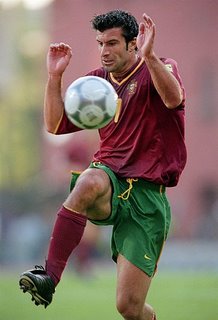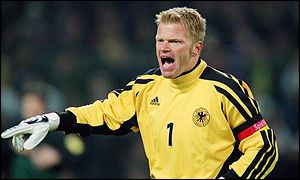
Perhaps the only thing more sad than the recent lack of posting on this site, is the fact that basically the entire World Cup has gone by without mention. One of the world’s greatest sporting events deserves better. But while a World Cup Preview, mid-season report, or a few team biographical articles were noticeably absent, I’m writing this article as a small consolation.
And ‘consolation’ also happens to be the subject at hand: in this case the World Cup Consolation game. There are many things that American major sports could learn from the world’s favorite tournament. Of course, there are many things I pray America never learns from the rest of the world’s sporting mentality: flopping, refereeing that threatened to make the “you breathed on Dwayne Wade, so it’s a shooting foul” job done by Joey Crawford, et al in the NBA Finals look like a flawless masterpiece, and fan outrage that at times amounts to nothing more than mob violence and makes the Pacers-Pistons brawl look like as innocent as a starring contest by comparison. These things have hurt, and threatened to ruin, a truly great sporting event. They’ve also turned off many casual viewers in the States, which really is a shame.
But the consolation game is something American sports, most notably the NCAA Basketball Tournament, could learn from. Instead of letting two teams play one last game to decide who was better between the two semi-final losers, we’ve decided to hype a team for making ‘The Final Four’, or the ‘Elite Eight’, etc. Making it to those rounds is a huge accomplishment, but since when do we praise a team for reaching an arbitrary round of a tournament. In sports it has always been about who wins: and due to the influence of the Olympics the top three finishers will always hold special significance.
Of course, there will always be nay-sayers who discredit the game for lack of motivation. Is it true that teams sometimes have trouble being motivated for such an event? Absolutely, and so would you. Think about the circumstances for a second. You just played your heart out through three group games, the first elimination game, and the quarterfinals; only to lose a heart-breaker in the semifinals. Wouldn’t you have a little trouble getting motivated to play a game that has no chance of helping you accomplish the goal which has been your motivation for four years.
Putting the motivation issues aside, after the first 10 or 15 minutes of play, it’s hard for the players not to be motivated. The competitive juices are flowing, and there’s no excuse not to go for it while you’re out there. And at the point, the true value of a consolation starts to show itself. It is a showcase of skill, national pride, and an excellent way to say good-bye. Because the World Cup is more than a competitive international tournament, more than an exhibition of excellent soccer talent: it is an event where legacy’s are both born and put to rest. For every Ronaldo or Micheal Owen who uses the World Cup to burst onto the scene, there is a player like Zinedine Zidane or Luis Figo who uses great play at his last World Cup to put his legacy to rest, or ensure it’s final resting place.
Was there any real soccer fan watching the Third Place Game who wasn’t appalled that Portugal’s Figo wasn’t in the starting lineup? Of Course not, it seemed like the perfect opportunity for one of the great players in the game to play his last game, to give us one last playmaking showcase. Upon entering the game in the second half, Figo immediately changed the game, getting the assist on Portugal’s lone goal. It was then, not after the devastating loss to France on a lone Penalty Kick, that Figo’s career ended. It was the third place game, where the end result wasn’t quit as important, where Figo, and all his fans around the world, found closure.
The same can be said for German Goalkeeper Oliver Khan. After almost single-handedly leading Germany to the World Cup Final four years ago, only to have his only sub-par performance in the second half against Brazil, Khan found himself on the bench in 2006. Four years ago he became the first goalkeeper ever to win the Golden Ball Award for the tournament’s most outstanding player, today he is a bench player. 
But German Coach Jürgen Klinsmann seems to have a good understanding of the importance of closure, the value of a consolation game. He decided to put Khan in for the consolation game as the starting Goalkeeper, and team captain. He did this as a sign of respect. He had seen how Oliver Khan had never complained after his demotion, how he had still impacted the team for the better when he wasn’t on the field. This was his reward
In sports, occasionally there are times when it’s about more than the end result, when players deserve our respect, and an extra moment in the spotlight. Klinsmann instinctively understood this, and so should we…
Sunday, July 09, 2006
Consolation Closure
Posted by
Mac
at
7/09/2006 04:58:00 PM
4
comments
![]()
Subscribe to:
Comments (Atom)
